#klemens von Metternich
Text

I am now imagining Napoleon monkey hunting in America and eating coconuts to reflect on his past greatness
#Napoleon#napoleon bonaparte#napoleonic era#Metternich#klemens von Metternich#emperor Napoleon#Marie leopoldine Metternich#meme#Napoleon meme#Napoleon memes#France memes#French memes#history memes#history#frev#french revolution#Napoleonic wars#first french empire#French empire#19th century#1800s#France#napoleonic#humour#humor#funny#history meme#1st empire#book#quote
1K notes
·
View notes
Text
#forgot to post this OOOPSS#murat#joachim murat#pyotr bagration#klemens von metternich#napoleonic wars#napoleonic meme
55 notes
·
View notes
Text
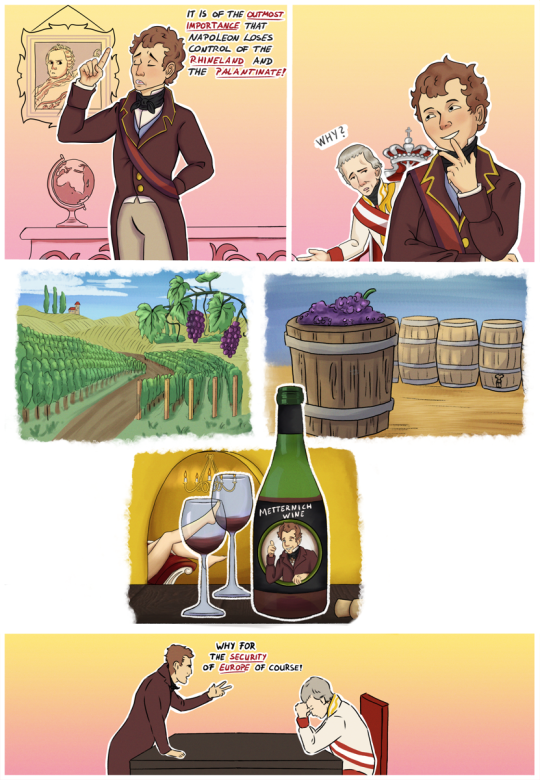
There is a Metternich wine being sold in basically every German supermarket. I've known about if for years, but only now decided to look into the backstory of that and it turns out that Metternich was gifted the vineyard Johannisberg in the Palatinate (a region known for its vineyards) to secure his financial situation after the wars.
I mean if Napoleon gets accused of "starting wars for fun" I'm gonna start spreading the word that Metternich stirred shit up so that he could eventually slap his name on some mid wine :P
#yes i always get my inspiration from supermarket brochures#artists on tumblr#klemens von metternich#francis i/ii of austria#napoleonic era#napoleonic wars#apparently it's actually a white wine instead of red#so yeah that's the only mistake#everything else in this is def 100% historically accurate
62 notes
·
View notes
Text
The Metternichs about Junot
Metternich to Mme Metternich, 14 February 1810
It is with true sorrow that I take up my quill today. Your letter of 26 January contains one of the scenes that show us the people of 1792 and 1793 exposed and naked. Place a being like J[unot] in a very high position, he will drink blood without letting any misgivings stop him.
That’s Metternich reacting to the news of the scandal Junot had caused after having discovered the correspondence between his wife Laure and Metternich, proving they had had an affair. Metternich himself was not in Paris at the time but had left some time after the war of 1809 between France and Austria had begun, and in the meantime had taken over the ministry of foreign affairs in Austria. However, Lorel Metternich with the kids had stayed in Paris, and Junot had dragged her right in the middle of a scene of severe domestic violence that she immediately informed her husband of, with the help of a secret agent Metternich had in Paris, Benoit des Androuins.
Interestingly, Lorel Metternich at first does not mention any involvement of Caroline Murat in this event, she only lists her as one of the people gossipping about it.
Other than that, Lorel apparently behaved as prudently as she could once she had entered Junot’s house. According to the letter by Androuins, Junot had forced Laure to write a message to Lorel, urgently inviting her over. On entering, Lorel found Laure Junot crying on the sofa, hiding her face in both hands. - According to Laure’s own journal intime, the last hours had been a nightmare for her, including attempted rape and attempted murder. - Once Lorel Metternich was in the room, Junot locked the door behind both women and started to rage against Metternich, demanding Lorel take revenge upon him etc. The only thing Lorel answered was: "But you are mistaken, Monsieur le Duc. This is not my husband’s handwriting." - Despite the fact she had obviously recognized it. Again, according to Laure’s journal intime, she at some point managed to silently ask Laure if she could do something for her.
Despite Lorel’s calm reaction, the scene must have scared her a lot. At least she seems rather relieved to learn that the Junots were to leave the capital, when she writes to her husband:
Bluebeard has finally left with his amazon and, as I am assured, probably never to return.
"Bluebeard" obviously referring to Junot.
Edit: Forgot to add the source for the two letters: Conti, "Metternich und die Frauen", Vol. 1 - The description of what may (or not) have happened during the night when Laure was alone with Junot are a brief summary of the excerpts from Laure's "journal intime" quoted in Toussaint du Wast, "Laure Junot". It is to be noted that this "journal intime" may have been written years after the event for Balzac, and that it is per se unverifiable.
However, Lorel Metternich calling Junot "Bluebeard" at least strongly hints at her, too, being convinced that Junot had physically abused and possibly tried to murder Laure.
Edit II: On second reading, I added an "attempted" to the accusation of rape. Of course, by the reasoning of the law at the time, rape in the judicial sense would not even have been possible between spouses. Obeying to the husband's needs was the wife's job. - As to Laure's "journal intime", she describes that Junot tried to force himself on her, but claims that she managed to make him stop. (I am not sure I fully believe her.) Junot then at some point attacked her with a pair of scissors, wounding her, before trying to strangle her. He only stopped when Laure was close to loosing consciousness and when he literally saw her blood on his hands. That's how Madame Metternich found Laure on entering.
43 notes
·
View notes
Text


"Je t'ai écrit dernièrement que, quand je rêve, je suis pendant vingt-quatre heures dans une disposition particulière et qui jamais n'est gaie. Eh bien, j'ai rêvé la nuit dernière que j'étais à Londres; je suis allé à Drury Lane et, peu après mon arrivée dans la salle, je t'ai vue arriver dans une loge vis-à-vis de la mienne. Tu m'as reconnu sur-le-champ. Ton mari était avec toi. Tu m'as fait signe de ne pas venir chez toi... J'étais au désespoir".
part 1 out of probs just 1 cause i am a clown of a passage from metternich's letters to lieven that haunts my own dreams. the haunting part is not included in this art, though 🤡
#my art#dorothea lieven#klemens von metternich#19th century#regency era#artists on tumblr#idk how to tag it i gave up
30 notes
·
View notes
Text
I'm reading about the 9 hour Dresden conference where Napoleon and Metternich are just arguing back and forth and all I can picture is that scene in Megamind when he and Metroman are bickering 🤣
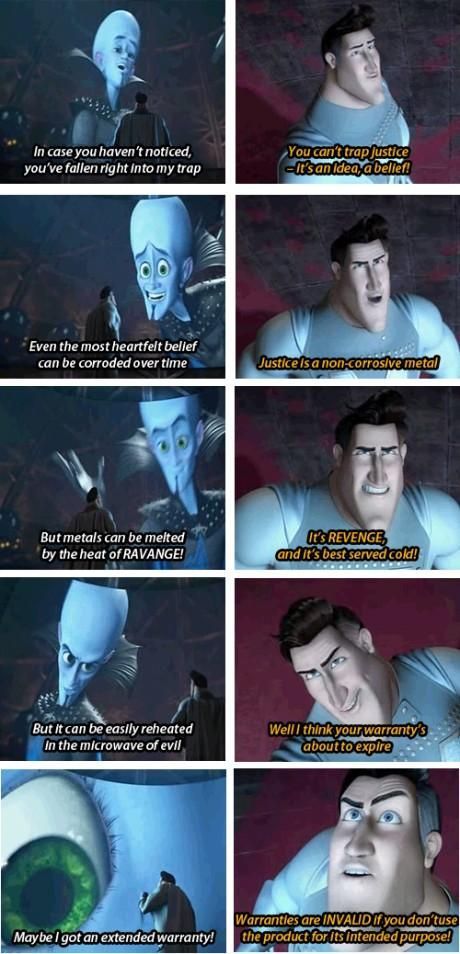
95 notes
·
View notes
Text
Just some Pictures from a Little Outing
Yesterday, Mama Hopster and I (who really needed a break from Uni work, which has consumed most of my days.) went into Copenhagen to see the Thorvaldsen museum.
I had mentioned a week before that I wanted to go see the museum, since His statues looked awesome, and that there was a Poniatowski statue in there that i wanted to see (thank you @captainknell for asking if I had seen the statue. I probably wouldn't have realized it was there if you didn't.)
I knew there was other statues of figures who were involved in the Napoleonic wars there, but I wasn't sure how many were Displayed. But my surprise and delight, I could see all of them.
There was three Pieces of Poniatowski:
This bust
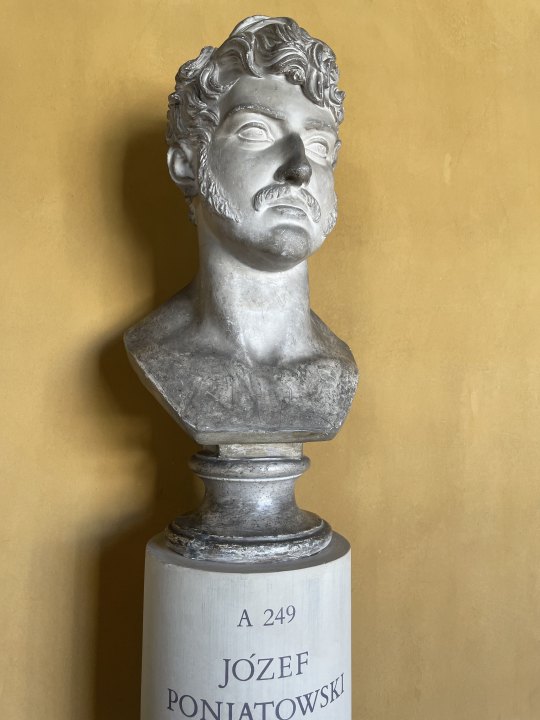
This plaster model
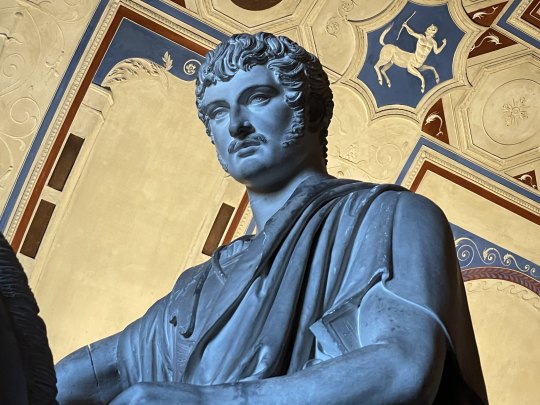
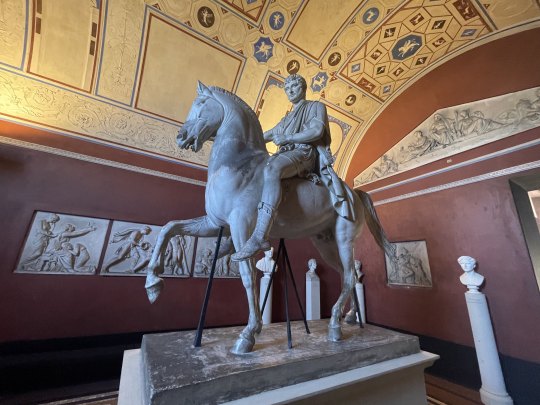

and this full sized one
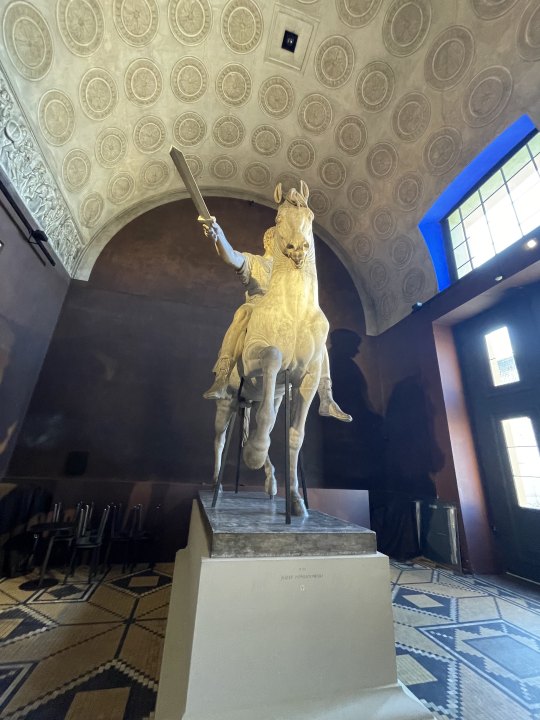



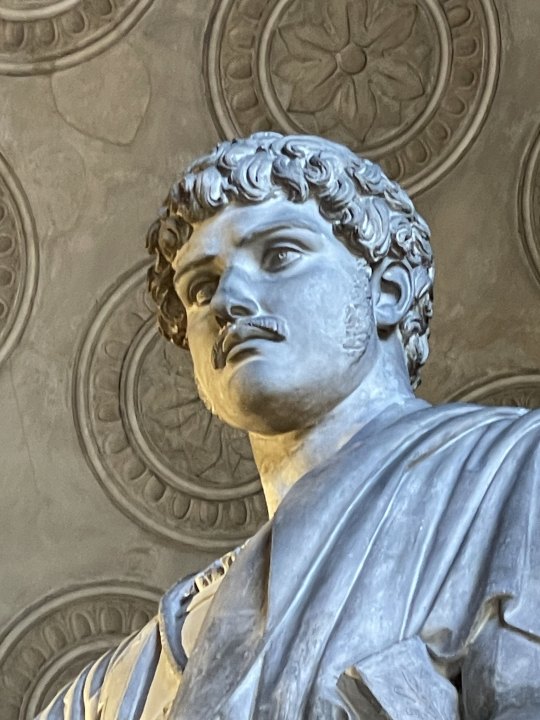
This Napoleon bust

One of Eugene de Beauharnais


Metternich (If this is accurate to his looks, I can't help but think he's pretty good looking.)
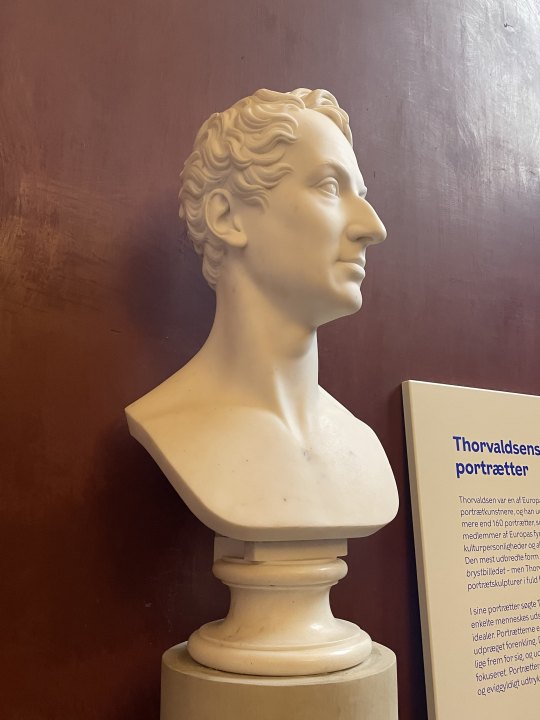
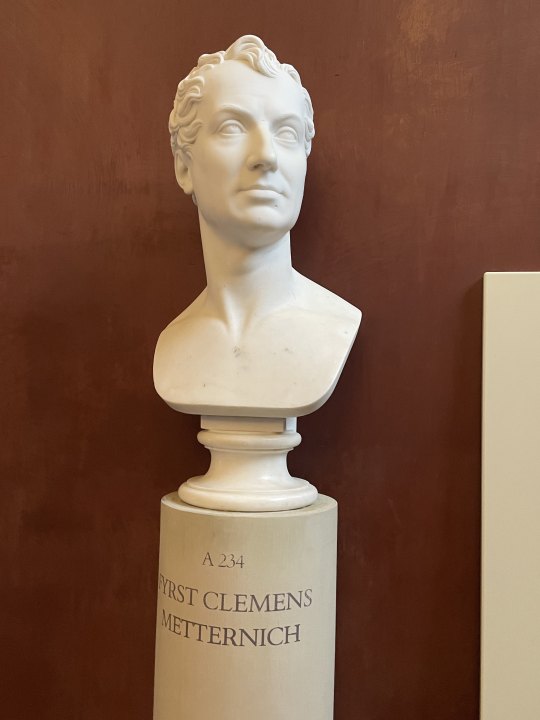
and here's other assorted pictures
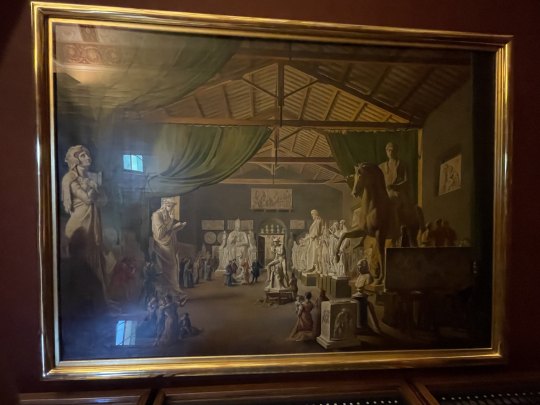
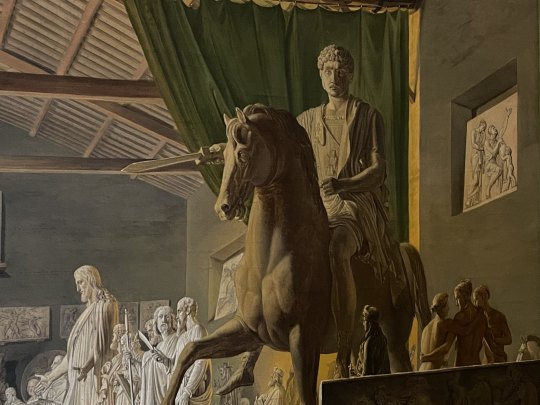
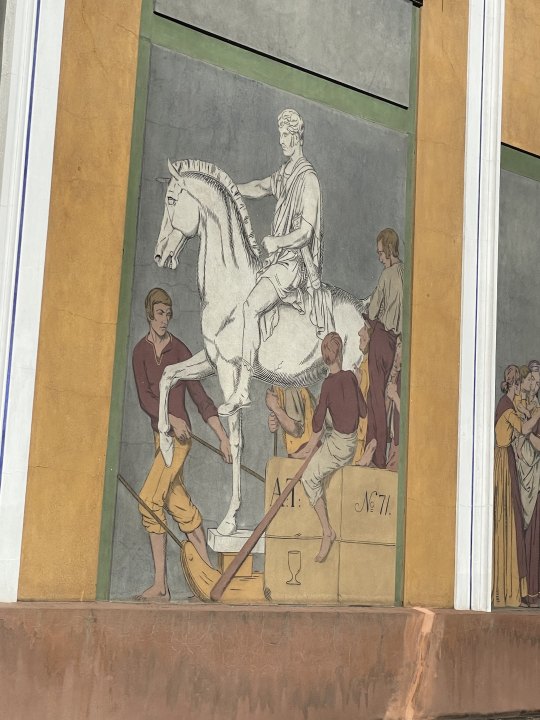
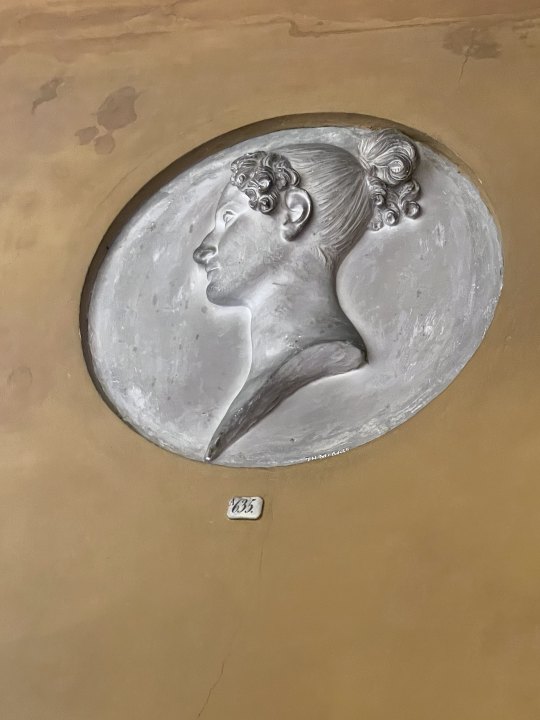
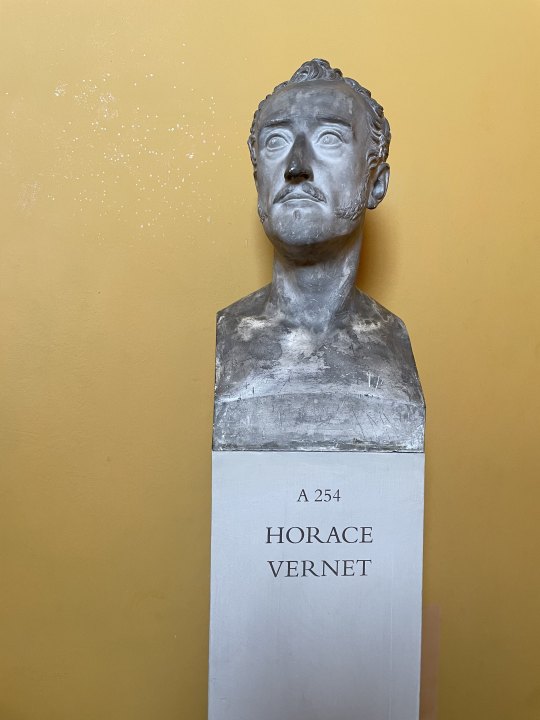

#historical#personal travel#Thorvaldsen museum#Denmark#Copenhagen#józef poniatowski#napoleon Bonaparte#Klemens von Metternich#eugene de beuharnais#art#statues#Horace Vernet#Christina-Égypta Bonaparte#bertel Thorvaldsen
26 notes
·
View notes
Text
Even though I’m currently off Tumblr for the most part, I can’t miss such a favourable opportunity, since someone unbelievably important for the European history (even not if in a positive way) has been a part of its legacy for 250 years now. 🇦🇹

Happy birthday to that cunning Austrian minister over there - refined aristocrat, perfect gentleman and a hopeless romantic deep in his heart (even though he denied it himself and was denied by many of such merit). 🥂
He may be criticised or even judged severely for many of his deeds, yet he remains an exceptionally fascinating person to be studied.
Even more so, since he would have enjoyed it himself quite a bit. ;)
#look at this dreamy birthday boy 🎉#art#history#count’s drawings#klemens von metternich#napoleonic era#napoleonic wars#austrian empire#19th century
47 notes
·
View notes
Text
My relations with the Duke of Reichstadt (1/?)
Hey, guys! First of all, happy Murat day!
I know it's a bit contradictory that I'm posting King of Rome content on Murat's birthday, but I can't let go that the King of Rome's bday was the 20th! I wanted to draw something to celebrate it, but instead, I'll leave you with these memories of his best friend; Count Anton Prokesch-Osten about him. Please, forgive some misspelling you could find, since nor german, french or english are my native language! This text was translated from the german to the french, and so, I translate this to the english for you! Hope you enjoy it!
For some context, the King of Rome/Napoleon II is living in Vienna (he started living there at the age of three) at the time this takes place. They refer to him by his title (Duke of Reichstadt) or by "Franz".

The Duke of Reichstadt was then for me, as well as for all circles of Viennese society, one of those appearances that were as attractive as they were endearing. However, I hadn't had a chance to get close to him until then. Now, precisely around this time, my destiny took me to Trieste, then in the midst of the battles where Greece shed its blood in floods on the mainland and on the islands, finally to Constantinople, in Asia Minor, Syria, Egypt and Nubia. After six years of absence, I returned to my native land, where I found a welcome full of kindness and consideration. At that time, when no steamboat had yet sailed the seas of the Levant, voyages to such distant lands, participation in events which, like the struggles of the Greeks against the Turks, had the privilege of exciting minds to the point of higher, they were considered almost as a merit, and reflected a certain brilliance in whoever had achieved them. My native city, Gratz, gave me a particularly flattering reception, when in June 1830, I went there for a few weeks to see relatives and friends, as well as to find these places still filled with the sweetest memories and that had been the theater of my early youth.
At the same time the court also came to reside at Gratz, and on the 22nd of the same month, I had the honor of being invited to the imperial table; placed in front of the Empress, I had the Duke of Reichstadt next to me, seated in front of the Emperor. This handsome and noble young man with deep blue eyes, a masculine forehead, abundant blond hair, silence on his lips, calm and self-possessed in all respects of him, made a truly extraordinary impression on me. I had a feeling similar to the one that comes over a teenager who first meets the young woman to whom he will give his heart. I only exchanged a few shy words with him the whole time we sat at the table; because the Empress and my former protector, Archduke John, were never tired of me telling them what I had seen and learned in foreign countries that we then considered so distant. Much better, after dinner they held me back for several more hours, and when I was finally allowed to retire, the Duke of Reichstadt barely had time to throw these few words at me:
"You've known me for a long time," and he squeezed my hand as if we were old friends.
This handshake was, in fact, a promise for the future. It could only have been given in this sense, and I did not attribute any other idea to it.
The next morning Count Maurice Dietrichstein, to whom the Duke's education was entrusted, came to my house. The count had shown me kindness from the moment that the favor of the princely house of Schwarzenberg had supported me. He reiterated the reproach already formulated the day before, namely, that, although he had been in the same city for a week, he had neglected the duke. The count offered to take me to the young prince at the same moment. I followed him with pleasure. At my entrance, the duke, whose attitude was not at all like that of the day before, rushed towards me with all the petulance of youth, his look animated and full of confidence. Repeating the words of the previous day, he exclaimed:
"You have known me and I have loved you for a long time. You defended my father's honor at a time when everyone was slandering him at will. I have read his memoirs on the Battle of Waterloo and, to better understand each line, I have translated them twice, first in French and then in Italian.”
I responded in terms inspired by the desire to bond closely with this handsome young man so neglected in this world.
Count Dietrichstein took the conversation to Greece. Expressing the most ardent wishes for prosperity for this people, who are now called to live their own lives again, already the day before, after having dinner with the imperial family, I supported the opinion that, despite the unfavorable conditions resulting from war, anarchy, factions, mismanagement, Greece, if given a prince of a European dynasty as king, and if its organization were not the work of diplomatic insufficiency, would move very rapidly towards a flourishing future. In the presence of Archduke Jean, Count Maurice, Colonel de Werklein, intendant of the Archduchess Maria Luisa, I, taking advantage of a moment when the Duke of Reichstadt was busy elsewhere, slipped into the course of the conversation the idea that the throne of Greece, devoid of claimants since the refusal of the Prince of Coburg, could not be handed over to a more worthy than the son of Napoleon: This proposal had received, to my surprise, general approval, The Empress herself, who, during this conversation had approached us, did not seem to oppose it. She had expressed this idea without yet knowing that they were the views of the Prince of Metternich; however, as early as 1825, I became aware of the statement made by this diplomat in St. Petersburg:
"One of two things: either the Greeks will again be subjected to Bonaparte, and given administrative autonomy; or an independent Greece will be constituted in such a way that it will not necessarily be Bonaparte's enemy."
However, Count Maurice had given me the chance to talk about Greece once more that morning, the duke soon guessed my thoughts and caught fire with my words. We were interrupted at that moment by the General Prince of (...). He wanted to say goodbye; however the duke insisted:
"The general," he told me, "he'll only stop for a moment, and I'd be very upset if I lost you soon."
I stayed. The Prince of (...) soon left, rebuffed by the duke's laconicism. So Count Dietrichstein brought up the conversation about Napoleon.
The duke spoke with high spirits. We could feel in each of his words the warmest admiration, the deepest attachment for his father; however, he preferred to rely on his military talents. To take him as a model and thus become a great captain, at this point he was all fire, all flame. We discussed several of the Emperor's maneuvers, including Austerlitz. I was surprised by the prince's strategic judgment and the precision of his expressions. Of all the officers and generals then at Gratz, there was, of course, not one who had the keenest military eye and was endowed with the most pronounced aptitude for command-in-chief. He returned not only to my published account of the Battle of Waterloo, but also to "the memorable events in the life of Field Marshal Prince Charles of Schwarzenberg.
The duke appreciated them with a sagacity that astonished me. Then he complained of his isolation, and poured out his soul in these words:
"Stay with me; sacrifice your future for me, stay with me! We are made to understand each other!"
He expressed himself with such warmth that he touched me to the bottom of my heart. Then he continued:
"If I am called to be another Prince Eugene for Austria, the question I ask myself is this: how will it be possible for me to prepare myself for this role? I feel indecisive in choosing a man capable of introducing me to the high demands and noble duties of the military career. I do not have and do not see any man of this merit in my entourage."
Count Dietrichstein witnessed this departure, and seemed to find it natural and fair. I reproached the duke, cordially shaking his hand, for judging too hastily. He accepted my guilt without taking offense and listened deferentially when I expressed the doubt he felt about my ability. Our interview was interrupted by the General Count of Leiningen, whom I could not refuse to receive. But, once again, he did not let me go, and as soon as the count left, he resumed the conversation about his father's feats of arms.
As it was necessary to pay my respects to his mother, the Archduchess Maria Luisa, I could hardly delay any longer; I warned him about it and said goodbye to him. I had been at the archduchess's for barely half an hour when the duke went there in the same manner. His mother received him tenderly; he kissed her with a rather serious air. The conversation focused on his childhood. He wanted her to give him more precise information about Colonel Sèves, who had accompanied him from Paris to Blois in March 1814, and whom he had met in April 1828 in Modon, at Ibrahim-Pasha's house. I had to tell him what the colonel had taught me about this fatal escape.
We perceived each other as two men who were convinced that nothing could separate them.
Source:
Mes relations avec le duc de Reichstadt : mémoire posthume / par le comte de Prokesch-Osten,. . . ; traduit de l’allemand [par A. de Prokesch-Osten fils]. Gallica. https://gallica.bnf.fr/ark:/12148/bpt6k6536278r/f38.item.zoom
#napoleon ii#klemens von metternich#l'aiglon#karl zu schwarzenberg#the king of rome#memoirs#anton prokesch-osten#duke of reichstadt
35 notes
·
View notes
Text

prime minister✨
13 notes
·
View notes
Text
Metternich wrote in 1807:
“All nations have made the mistake to attach to a treaty with France the value of a peace, without immediately preparing again for war. No peace is possible with a revolutionary system, whether with a Robespierre who declares war on chateaux or a Napoleon who declares war on Powers.”
Source: A World Restored, Henry Kissinger
Oh Metternich. I feel the need to point out that Napoleon never declared a war in his life.
#this is from Kissinger’s doctoral dissertation#I’m obligated to make this observation everytime someone says this#Metternich#Napoleon#klemens von metternich#napoleon bonaparte#napoleonic era#napoleonic#first french empire#Austria#19th century#quote#ref#reference#frev#french revolution#french empire#napoleonic wars#france#coalitions#history#text post
55 notes
·
View notes
Text
Made at 2 am
33 notes
·
View notes
Text

I'm here to bring you totally true Napoleonic history facts and stupid Simpsons jokes.
#napoleon#napoleon bonaparte#napoleonic era#napoleonic wars#metternich#klemens von metternich#francis i#austrian empire#my art
89 notes
·
View notes
Text




europe's parents europe's parents europe's parents
✨europe's parents ✨
ofc they would be fashionable in a modern setting they were not effeminate dandies for nothing–
#lord castlereagh#klemens von metternich#my art#modern au#maybe the real balance of power was the friends we made along the way
15 notes
·
View notes
Text
Every time I think about Klemens von Metternich (always just by his last name, of course) the famously arch-conservative Austrian foreign minister, my brain always thinks his first name is ‘Klaus’, then I look it up and it’s always klemens and I’m always surprised.
3 notes
·
View notes
